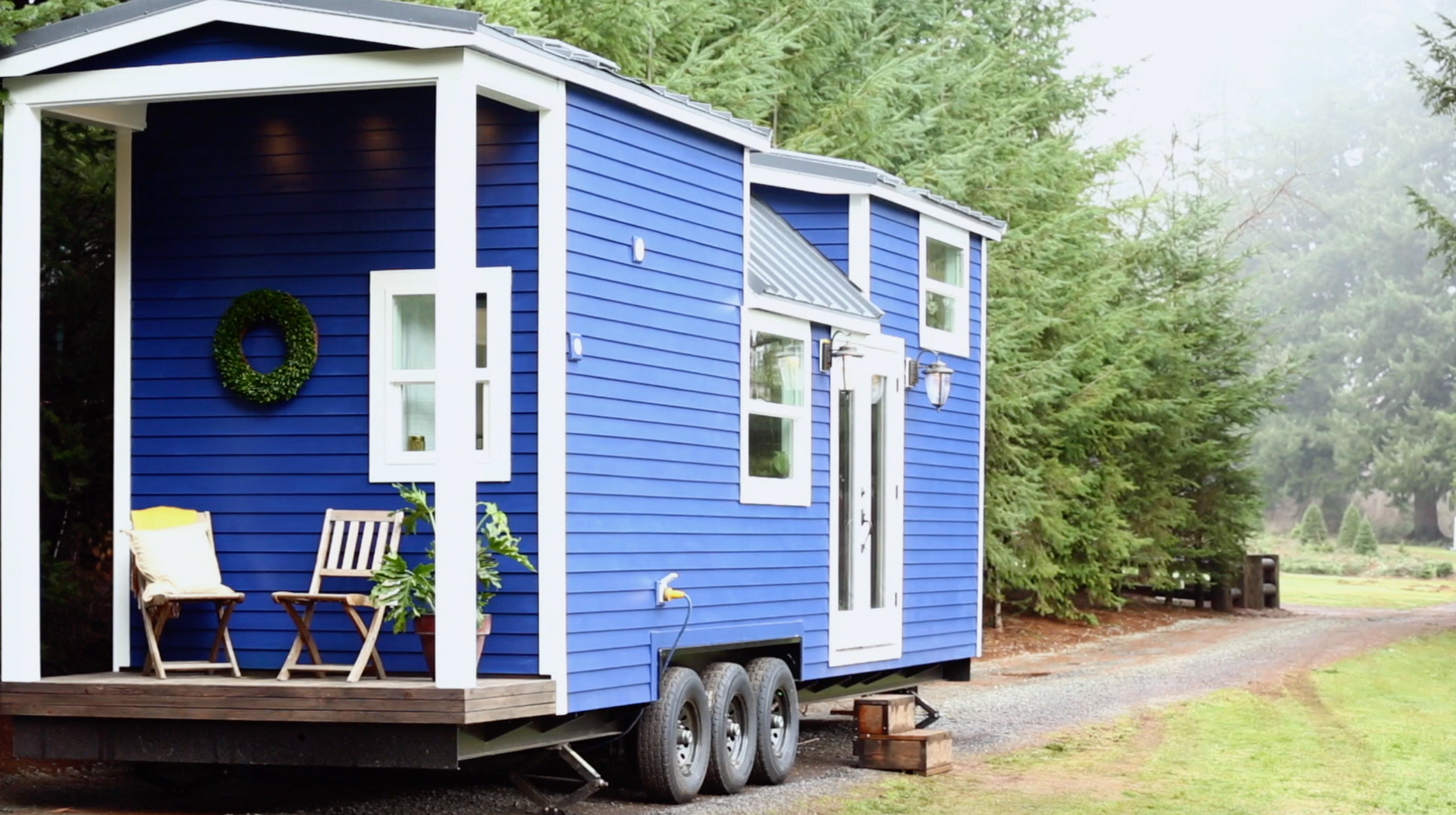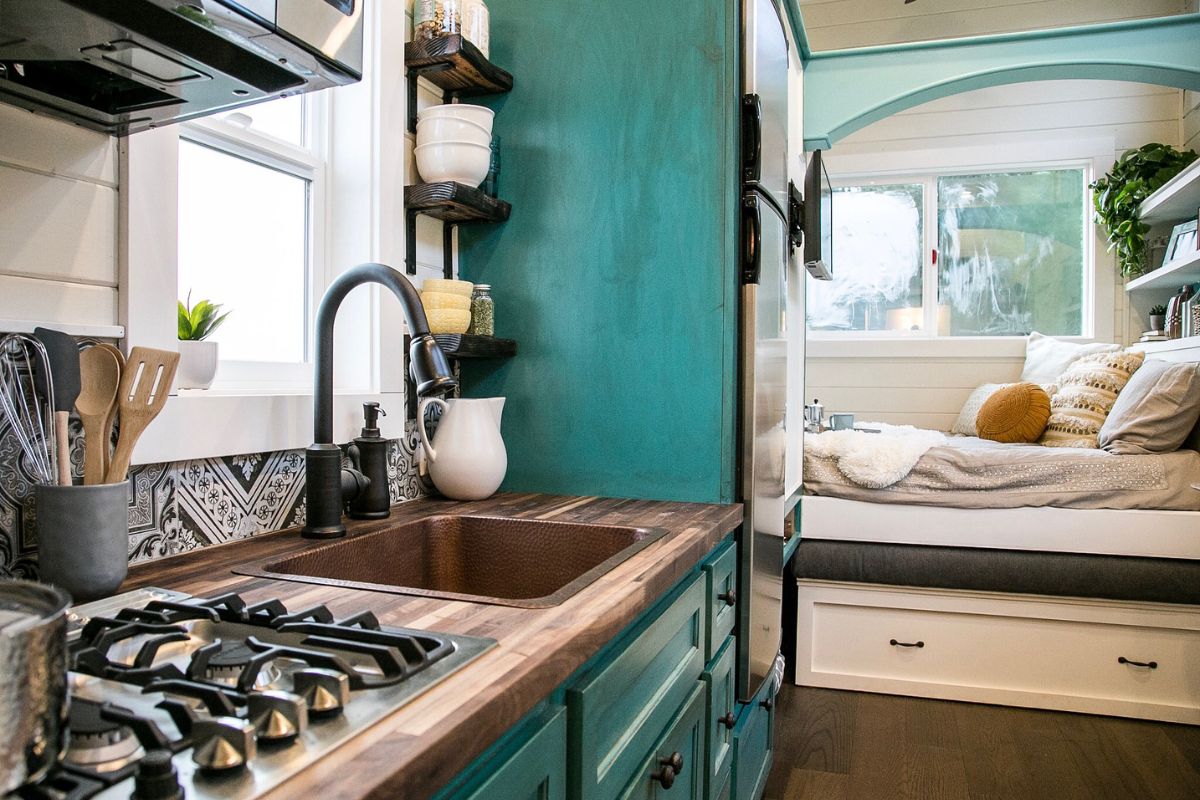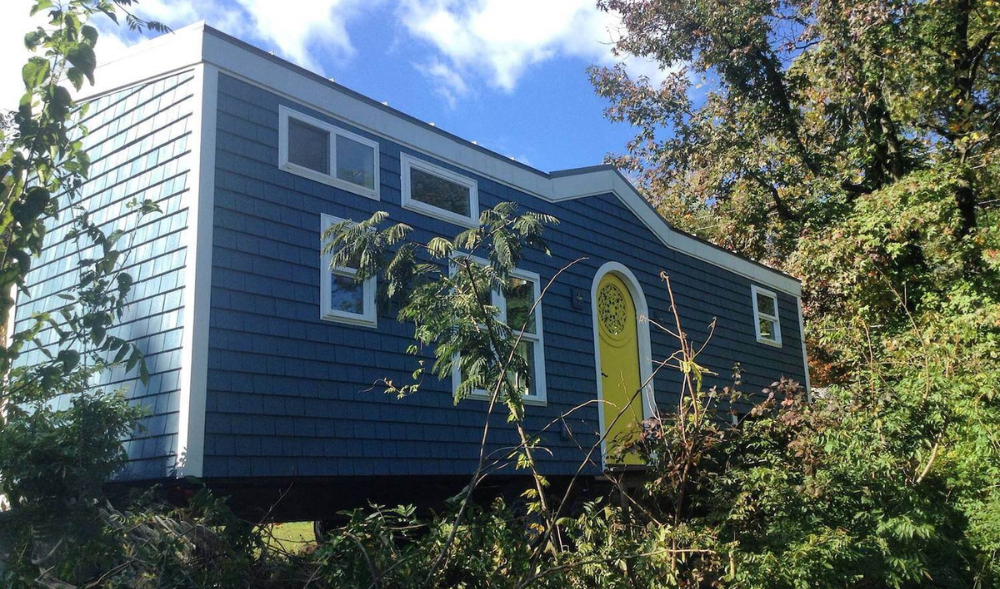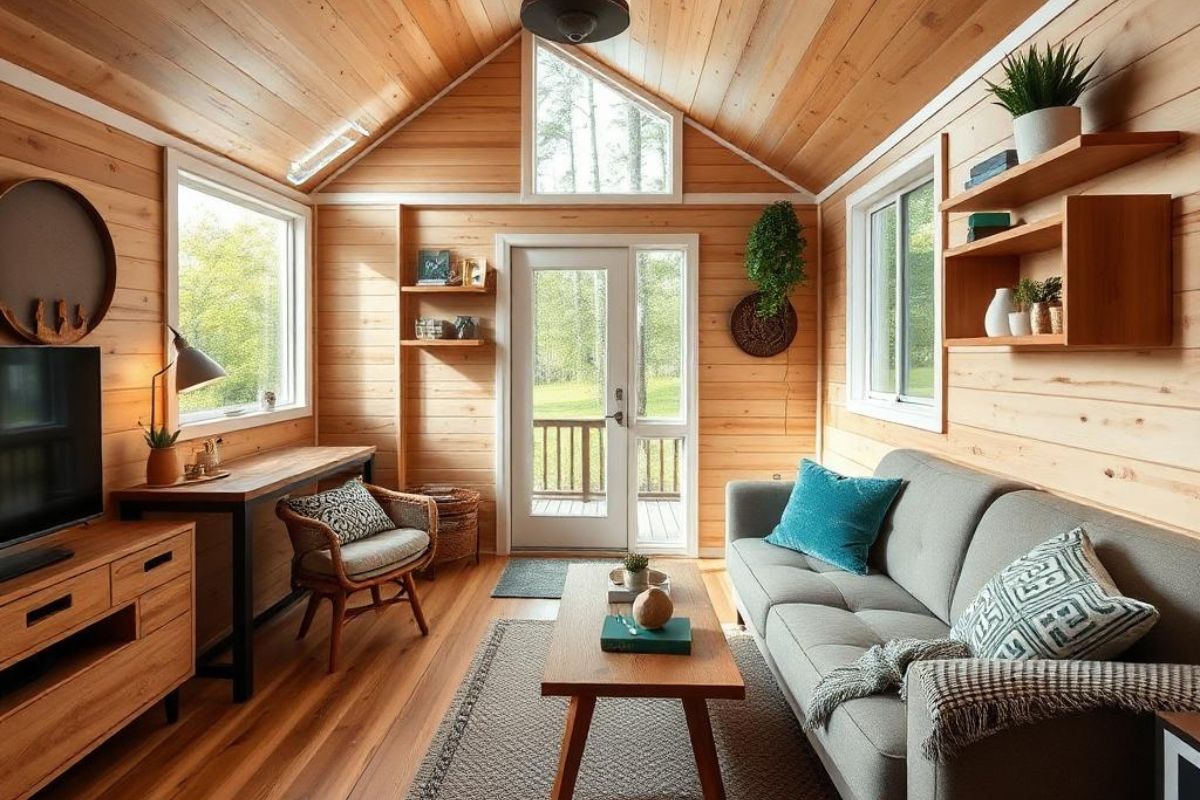Tiny house living lets you save money on housing, utilities, and upkeep, while encouraging minimalism and eco-friendly habits. You’ll get more mobility and freedom, but you’ll face tight space, storage issues, and challenges hosting guests or managing hobbies. Privacy is limited, and you may need to navigate zoning laws and unique maintenance tasks. If you’re curious how tiny homes balance finances, sustainability, and lifestyle tradeoffs, there’s a lot more to weigh before making the leap.
Key Takeaways
-
Tiny homes offer significant financial savings through lower mortgage, utility, and maintenance costs.
-
Downsizing encourages a minimalist lifestyle, reducing clutter and focusing on essential, high-quality possessions.
-
Tiny living has a smaller environmental footprint, using fewer resources and promoting sustainable choices.
-
Limited space and storage can pose challenges for organization, hobbies, and accommodating guests.
-
Mobility and flexibility allow for easy relocation, but are constrained by zoning laws and logistical considerations.
Financial Benefits of Downsizing
When you downsize to a tiny house, your financial burdens often shrink along with your living space. You’ll notice immediate savings on your mortgage or rent, as tiny homes typically cost far less than traditional houses. Lower utility bills follow because you’re heating, cooling, and powering a much smaller area.
Maintenance expenses drop too—there’s simply less to repair or replace. Property taxes tend to be reduced since your home’s assessed value is usually lower. You can also save on furnishings and décor, needing fewer items to fill the space. If you finance your tiny house, you may pay it off faster, freeing up income for other goals. Overall, downsizing lets you redirect money toward savings, travel, or other priorities.

Embracing a Minimalist Lifestyle
Although moving into a tiny house requires significant adjustments, it naturally encourages you to adopt a minimalist mindset. With limited space, you must evaluate each item’s necessity and value, keeping only what truly serves a purpose. This process helps you streamline your possessions, reducing clutter and distractions. You’ll find yourself prioritizing quality over quantity, investing in durable, multifunctional items rather than accumulating excess.
Minimalism also extends to your routines; you’ll develop habits that make the most of your space and time. However, living minimally can feel restrictive if you’re attached to material possessions or sentimental items. The adjustment period may challenge your comfort zone, but embracing minimalism often leads to increased clarity, freedom, and focus in your daily life.
Environmental Impact and Sustainability
Because tiny houses require fewer materials and less energy to build and maintain, they offer a practical way to reduce your environmental footprint. You’ll notice lower utility bills, decreased water consumption, and less waste production compared to traditional homes. Many tiny houses use eco-friendly materials, solar panels, and composting toilets, helping you minimize resource use and pollution. Living in a smaller space also means you'll buy and store fewer items, which reduces your overall consumption.
However, sustainability depends on your choices. If you use non-renewable materials or rely on inefficient heating, the benefits shrink. Location matters too—frequent moves or long commutes can offset eco-gains. By making thoughtful decisions, you can maximize a tiny house’s positive environmental impact and make sustainable living more achievable.

Space Constraints and Storage Challenges
While tiny houses promote a simpler lifestyle, limited square footage forces you to rethink how you use every inch of space. You’ll need to prioritize your belongings and regularly declutter, since storage options are minimal. Multi-functional furniture—like beds with drawers or fold-out tables—becomes essential. Every possession should serve a real purpose, or else it quickly turns into clutter.
Closet and kitchen storage often require creative solutions such as vertical shelving or hanging racks. You might miss having room for hobbies, guests, or seasonal items. Bulk shopping is rarely practical due to limited pantry space. Ultimately, you’ll need to adapt your habits and expectations, finding satisfaction in less. It’s a daily exercise in organization and intentional living, but not without its challenges.
Mobility and Flexibility
If you value the freedom to relocate, a tiny house offers unmatched flexibility compared to traditional homes. You can hitch your home to a truck and move whenever your lifestyle or work demands a change of scenery. This mobility lets you explore new communities, climates, and opportunities without the hassle of selling property or packing up an entire household. It’s practical for those who crave adventure or whose careers require frequent moves.
However, you’ll need to take into account logistics. Zoning laws, parking restrictions, and access to utilities can limit where you can legally station your home. Moving frequently may also cause wear on the structure and systems. Still, if adaptability and the option to travel are priorities, tiny house living provides a practical and efficient solution.
Privacy and Personal Space Considerations
Living in a tiny house means you'll inevitably sacrifice some privacy and personal space. The compact layout puts you in close quarters with anyone you share the space with, making alone time harder to find. You won't have the luxury of separate rooms for different activities. If you value solitude, noise control, or personal boundaries, tiny house living can be challenging.
Sound carries easily, and there's little room to retreat when you need a break. On the other hand, you might find that the limited space encourages stronger communication and closer relationships. You’ll quickly learn to adapt, respect boundaries, and use creative solutions like partitions or outdoor areas for extra space. Weigh your privacy needs carefully before committing to this lifestyle.
Maintenance and Upkeep
Because a tiny house has less square footage, you’ll spend less time cleaning and maintaining the space. Daily chores, like sweeping, dusting, and tidying, take minutes instead of hours. Fewer surfaces mean you’re less likely to accumulate clutter or let messes go unnoticed. Repairs can also be simpler and cheaper because you have fewer systems and fixtures to worry about.
However, tiny homes require regular attention to maximize limited storage, prevent moisture issues, and keep everything functional. Small leaks or ventilation problems can escalate quickly in a compact space. You’ll need to stay proactive with upkeep, especially since wear and tear shows more readily. Overall, you trade time-consuming housework for the responsibility of staying on top of small problems before they become big ones.

Zoning Laws and Legal Restrictions
While tiny houses offer freedom and flexibility, zoning laws and legal restrictions often limit where you can place them. Many municipalities don’t classify tiny homes as permanent residences, restricting you to RV parks or designated tiny house communities. You’ll need to research local ordinances before you buy land or start building. Some areas require minimum square footage, permanent foundations, or specific utility hookups, which can add complexity and cost. If you ignore these rules, you risk fines or eviction.
On the positive side, some regions are loosening regulations or creating tiny-house-friendly zones. Stay proactive—contact planning departments and join tiny house advocacy groups to stay informed. Ultimately, maneuvering through legal hurdles is essential if you want your tiny house lifestyle to be sustainable and stress-free.
Conclusion
Living in a tiny house offers clear financial savings, a smaller environmental footprint, and the chance to simplify your life. But you’ll need to adapt to limited space, potential legal hurdles, and less privacy. Weigh the practical pros and cons before you commit. If you value flexibility, minimalism, and sustainability, tiny house living might suit you. If you need room to spread out or dislike frequent maintenance, it’s wise to reconsider before taking the plunge.






Share: